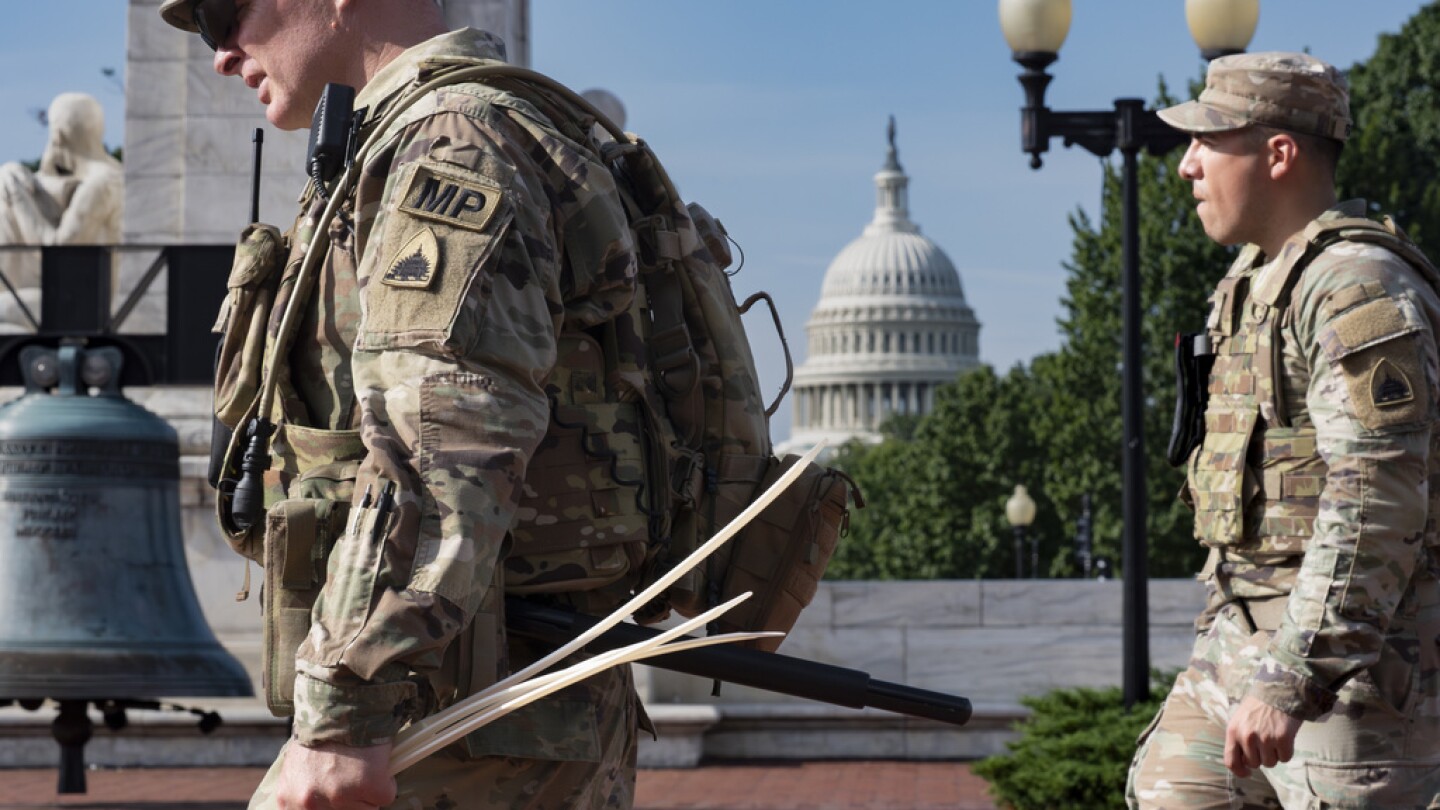Following President Donald Trump’s unprecedented announcement that his administration would take over the Washington, D.C., police department and dispatch the National Guard for at least a month, the White House announced there would be a round-the-clock presence of local and federal law enforcement officers in the city.
The White House said there were 45 arrests in the city last night, including 29 arrests of people living in the country illegally, and that over 1,650 people are now participating in the law enforcement operation. While the National Guard will be able to temporarily detain people while assisting law enforcement, they will not have the power of arrest, Pentagon press secretary Kingsley Wilson said Thursday.
The federalization push also includes clearing out encampments for people who are homeless and relocating them far from the city, although details of the plan are unclear. Washington officials have opted to tackle some of the work of closing encampments themselves in advance of Trump’s threat in order to offer stronger social services resources to those being displaced.
Other news we’re following today:
US wholesale inflation surged last month: The Labor Department reported Thursday that its producer price index — which measures inflation before it hits consumers— rose 0.9% last month from June, the biggest jump in more than three years. Compared with a year earlier, wholesale prices rose 3.3%. The numbers were much higher than economists had expected. The surge suggests that Trump’s import taxes are pushing up prices, and while U.S. importers may, for now, be eating the cost of Trump’s tariffs rather than passing them on to customers, that may not last.There’s confusion over who controls Washington police: Attorney General Pam Bondi is effectively in charge of the police department in Washington, D.C. — so says the White House. But the city’s police force already has a Pam at the helm — Chief Pamela Smith — and she says she only reports to the mayor. D.C. and federal officials say they are working together, but the unusual arrangement is raising questions about who gets to make decisions about police resources, personnel and policy.Trial over California National Guard deployment concludes: The three-day trial over whether the administration broke the law by sending Guard troops to accompany immigration agents on raids in Southern California concluded Wednesday. California argued that the deployment violated the Posse Comitatus Act, which generally prohibits military enforcement of domestic laws. Lawyers for the administration said the law does not apply because Trump called up the Guard under an authority that allows separate authority. The judge has yet to rule in the case.
